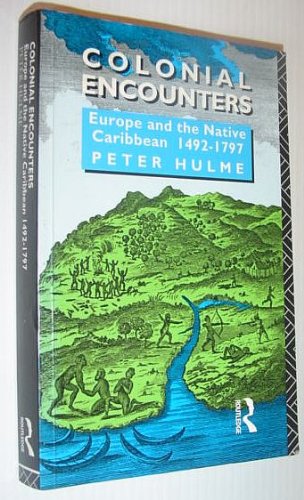Europe encountered America in 1492, a meeting of cultures graphically described in the log-book kept by Christopher Columbus. His stories of peaceful savages and cruel "cannibals" have formed the matrix for all subsequent descriptions of that native Caribbean society. The encounter itself has obsesssed colonialist writing. It reappears in the early 17th century in the story of John Smith and Pocahontas, and on the Jacobean stage in the figures of Prospero and Caliban. In the 18th century, over two hundred years after the European discovery of the Caribbean, the idea of a pristine encounter still permeated European literature through Robinson Crusoe's emblematic rescue of the Carib he called Friday. The last version - the enormously popular tale of Inkle and Yarico - was contemporary with the final military defeat of the remaining native Caribbeans in the 1790s. Peter Hulme's detailed analyses of these stories bring to light the techniques used to produce within colonial discourse a "savagery", that could be denied the right to possess in law the land that it cultivated.
This book should be of interest to undergraduates and academics in the fields of Renaissance, 18th-century literature and post-colonial criticism.
- ISBN10 0415011469
- ISBN13 9780415011464
- Publish Date 1 May 1992
- Publish Status Out of Print
- Out of Print 12 March 1998
- Publish Country GB
- Publisher Taylor & Francis Ltd
- Imprint Routledge
- Edition New edition
- Format Paperback (UK Trade)
- Pages 368
- Language English
